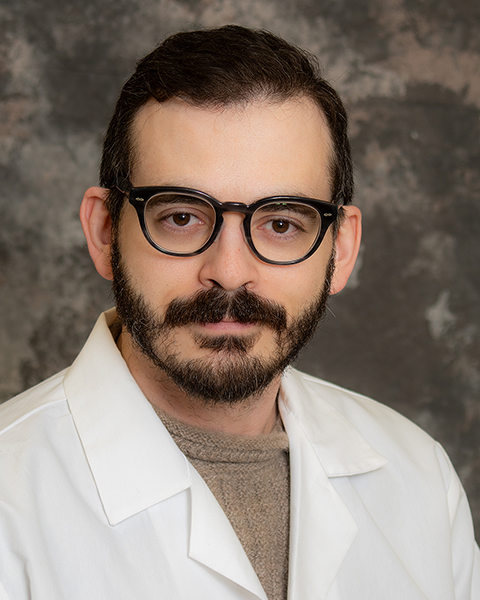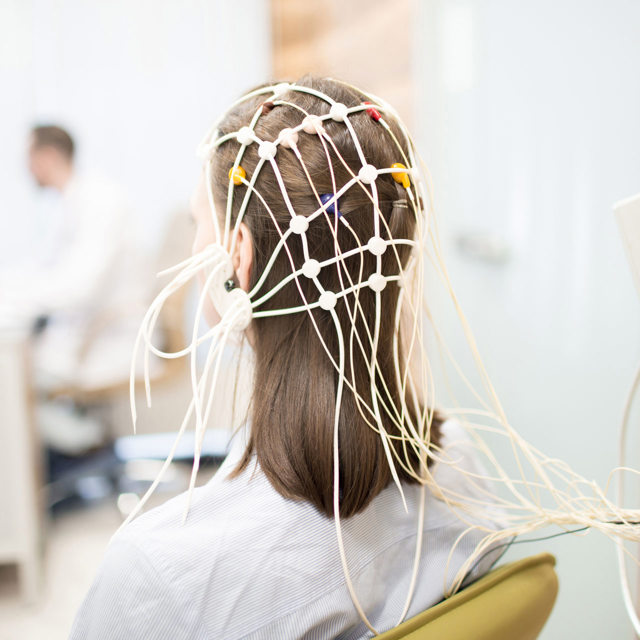
Expert Neurologists Serving Central Pennsylvania
Neurology
When looking for top neurologists near me in Central Pennsylvania, you may be surprised to know that Penn Highlands Neurology is right in your neighborhood. Our expert neurology specialists help improve the quality of life for patients suffering from disorders of the brain and nervous system from very serious diseases, including Parkinson’s, Alzheimer’s, stroke, MS, brain injuries, sleep disorders, migraines, and much more.
With neurology centers in DuBois and St. Marys, our team of top neurologists is focused on providing high quality, consistent care near to home so you can enjoy life to the fullest.
Brain and Nerve Doctors Near You
Neurology is a vast specialty, providing treatment for conditions that affect the brain and spine, the body’s central nervous system, as well as conditions that affect the peripheral nervous system which provides signals to the rest of your body. If you live in central Pennsylvania and have a neurological condition, you may have had to travel to one end of our state or the other for care. Now, however, you can stay close to home and obtain expert care for your condition. Our top neurologists work closely with you, your family and support network to create customized plans that include medications, exercises, and lifestyle changes to help you live your fullest life.



Neurology
Penn Highlands Neurology - DuBoisA Service of Penn Highlands DuBois

Neurology
Neurology Hospitalist
Penn Highlands Neurology - DuBoisA Service of Penn Highlands DuBois

Neurology
Penn Highlands Neurology - DuBoisA Service of Penn Highlands DuBois


Neurology
Penn Highlands Neurology - DuBoisA Service of Penn Highlands DuBois




Neurology
Neurology Hospitalist
Penn Highlands Neurology - DuBoisA Service of Penn Highlands DuBois

Neurology
Penn Highlands Neurology - DuBoisA Service of Penn Highlands DuBois
What conditions do neurologists at Penn Highlands treat?
Penn Highlands neurologists in central Pennsylvania are trained and experienced in diagnosing and treating a wide range of neurologic conditions. Our neurology specialists treats vascular neurology conditions associated with cerebrovascular disease, like stroke, as well as disorders of the brain, spinal cord, and nervous system, including headaches, epilepsy, and multiple sclerosis (MS). Neurologists also diagnose and treat movement disorders, traumatic brain and spine injuries, and sleep disorders.
Here is a list of the more common neurologist disorders treated in our neurology clinics:
- Alzheimer's Disease
- Amyotrophic Lateral Sclerosis (ALS)
- Brain Dysfunction
- Brain Injury
- Concussion
- Dementia
- Epilepsy and Seizures
- Headache
- Memory Issues
- Migraine
- Multiple Sclerosis
- Pain
- Parkinson’s disease
- Primary and Secondary Brain Tumors
- Sleep disorders
- Spinal Cord injury
- Stroke
- Tremors
Comprehensive Neurology Care in Central Pennsylvania
Neurological conditions often last for long periods of time or may even be permanent. These conditions are generally complex and require a comprehensive approach to treatment, that may include medications, various types of rehabilitation therapies, interventional treatments including surgery, and lifestyle adaptations. Our top neurologists are equipped with the training, resources and team to help provide this comprehensive neurological care to you or your loved one.
Some of the types of neurological care we offer include:
- Lifestyle changes, like the incorporation of exercise or elimination of certain foods, may be recommended as a first line of treatment for your neurological condition.
- Medication therapy is a common treatment for many neurological diseases and conditions. However, these medications may cause side effects or their ability to control symptoms may wane over time. Your Penn Highlands neurologist will oversee your medications, monitor side effects, and efficacy and adjust or change your medications over time, if needed.
- Infusions specific medications are also common treatments. For disabling neurological diseases like multiple sclerosis (MS), myasthenia gravis, and chronic inflammatory demyelinating polyradiculoneuropathy (CIDP), neurology treatment may include outpatient hospital infusions of both traditional and newer medications as well as access to home infusions.
- Botox injections for conditions such as cerebral palsy (CP) that lead to chronic spasticity can help manage symptoms such as muscle rigidity. Our neurologists also use Botox injections as a treatment option for some patients who suffer from chronic migraine headaches.
- Neuropsychology can be a treatment option for some people with dementia or concussion.
- Rehabilitation, including occupational therapy, physical therapy, and speech therapy play an important role in helping many patients remain active in work and at home.
- Neurosurgery may be an option for patients with conditions like epilepsy, Parkinson’s disease, essential tremor or other neurological issues affecting the brain, spine, or nervous system like normal pressure hydrocephalus, brain tumors, bleeding in the brain from various secondary causes, or spinal disease. While neurologists do not perform surgery, they work closely with Penn Highlands top-rated neurosurgeons who perform brain and spine surgery.
FAQs about Neurologists and Neurological Care
You should see a neurologist for treatment of medical conditions that affect your brain, spine, autonomic or peripheral nervous system. This includes conditions like seizures, epilepsy, multiple sclerosis, ischemic stroke, headache conditions, such as migraine, and spinal cord diseases.
Patients who experience any of the following should consider making an appointment at a neurology clinic as soon as possible, particularly if you have not been diagnosed with a seizure or movement disorder:
- Sudden or persistent headache
- Confusion or disorientation after a seizure
- Loss of consciousness
- Loss of bladder or bowel control
- Memory loss
- Lack of coordination
- Consistent confusion
- Double vision or loss of sight
- Altered mental state
Neurological conditions include degenerative disorders, movement disorders, and spinal and brain injuries. Some of the main neurological conditions include stroke, multiple sclerosis (MS), epilepsy, Parkinson's disease, headache/migraine, brain injuries, head injuries, spinal cord injuries, and Alzheimer’s disease.
Headaches are the most common type of neurological disorder, with 1 in 6 people suffering from a headache at any given time and 1 in 2 adults suffering from at least one headache per year. Headaches can range from mild to severe, and infrequent to chronic. Headaches can be both painful and debilitating. Penn Highlands neurosurgeons offer a range of treatment options for headache and migraines. Treatment is dependent upon the type and frequency of headaches. Learn more about migraine treatment at Penn Highlands Healthcare.
Neuropsychology is the study of the relationship between the brain and behavior and thinking abilities.
At Penn Highlands Healthcare, neuropsychological assessments can be conducted for adults and older adults through Penn Highlands Behavioral Health Services and Penn Highlands Neurology.
A neuropsychological assessment can help diagnose and treat individuals showing symptoms of dementia, as well as individuals who have other medical or psychiatric conditions and experience problems with memory and other cognitive abilities. It can also be used to diagnose and treat concussions for any age.
We can also provide therapy and other services to adults and older adults who are dealing with issues such as mood or anxiety disorders and difficulty adjusting to health-related conditions.



